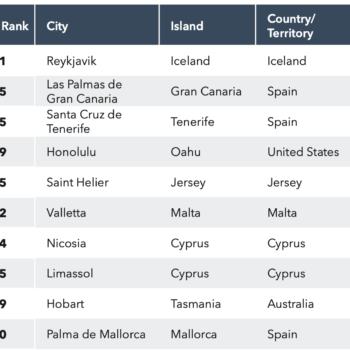Successful startup ecosystems are not just about startups but also about corporations. Most global startup hubs have the presence of many global corporations like Microsoft, Google, Intel, Accenture, IBM, etc. Few times, it is these corporations that have come up first and created an ecosystem conducive to startups and many other times startups have attracted corporations to cities.
Once corporations are established in a city, there are a number of other operations and service providers that come up to provide all sorts of services to such corporations. This creates the fertile ground for great ideas to be developed, which then leads to the creation of innovative startups.
Another way larger corporations can have an impact on local innovative startups is by buying them. Corporations are always trying to innovative, but larger companies have deeper pockets. Startups struggle with money but are always innovating and creating new technologies, processes and products that corporations might find attractive. Hence, a symbiotic relationship exists between corporations and startups which can lead to corporations either completely buying a startup or investing heavily in them. This helps boost a local startup ecosystem and becomes self-sustaining.
For startup entrepreneurs and businessmen, it is important to know how your city ranks for its startup ecosystem and how easy it is to set up a startup there. To know more about your city rankings, you can download our latest Startup Ecosystem Rankings Report here.
In this article, we will cover how corporations impact the growth of startup ecosystems:
How do Corporations impact startup ecosystems?
Corporations contribute a lot to the city where they establish their headquarters and offices. Today, governments are not just supporting startups but also helping corporations set up locally so that these corporations can boost the job market and local economy. Startups, entrepreneurs, and governments realize the positive effect that a successful startup ecosystem has on local economy. Hence, most successful startup ecosystems have also become hubs for corporations.
Here are some of the ways that corporations inculcate the creation of startups indirectly:
Corporate VCs (CVCs)
Most corporations have established Venture Capital funds that help them invest in innovative startups and reap financial benefits once these startups are successful. In this process, CVCs are able to boost local startup ecosystem since more and more startups are able to sustain themselves financially once a CVC has invested in them. Some examples of CVCs are Google Ventures, Intel Capital, IBM Ventures, and Microsoft Ventures.
Additionally, associating with a big branded corporation helps startups get:
- better connections which increases their chances of success
- a live business environment to test ideas and products, reducing failure rates
- mentoring to take their startup to the next level
- validation that they are already at the top of the game for being selected by corporations
By creating an environment helpful for startup growth, more startups are able to sustain and be successful which gives a boost to the local startup ecosystem.
Open Innovation
Another way by which corporations boost a startup ecosystem is by Open Innovation. Corporations associate with startups either through partnerships, equity investments, or accelerator programs, allowing them to make use of the disruptive ideas and innovation startups can bring to their organization. Again, this is mutually beneficial for both the startups and the corporations. This helps startups in many ways like:
- securing funds
- resolving infrastructure limitations
- providing valuable networking and connections
Open innovation partnerships may or may not involve equity and financial transactions. The large organizations may be involved because they wish to benefit from the disruptive and innovative nature of startups that can help corporations resolve internal business issues, provide entry into newer markets and technology, or keep them updated on our changing times.
Talent Attracting
When established in any city, corporations become places that attract top talent into that city. This helps create a talent pool which helps these cities become startup hubs. Having talent can help in 2 ways:
- firstly, more talented people sometimes branch out and become future entrepreneurs and set up their own startups
- secondly, by providing talent to established startups and eliminating talent shortage issues
Corporations are able to attract top talent nationally and even globally since they provide better incentives, salary, and stability. They also serve as teaching grounds for talent locally since most corporates have extensive training programs on the job. This creates a talent workforce that can be hired to fill multi-functional roles in a startup.
Often, corporations acquire startups just to bring a talented team or executive, like a CFO or CTO, into their organization. This can help many small scale startups keep running after their acquisition.
Networking
An indirect way by which corporations improve startup ecosystems is by building and providing both connections and networking platforms. Corporations might conduct several events that help bring the entrepreneurial community together, and people working at corporations or past colleagues may also become future clients, team members, investors, etc.
Financial support to local population
Corporations often pay more to their employees. More people under 30 are now opening startups since they have saved enough money working and gaining expertise in a corporation. This gives a big push to the local startup ecosystem.
Creating newer markets and services
When a large corporation opens in a city, there are new markets and opportunities created. Many new startups emerge to support these corporations, like service providers, coworking chains, logistical support, etc. A great example is the emergence of coworking chains and how so many coworking startups have been created.
Disadvantages that corporations pose to startups
The presence of corporations can also pose some issues to the local startup ecosystem. Here are some ways corporations might be hindering the growth of startups:
- Slowing innovation locally by acquiring too many startups too quickly. As a result, startups may shift their end goals toward acquisition rather than creating disruptive products, reducing the amount of actual innovation in the ecosystem.
- Less talent might be available to create startups if people feel there are more benefits in working for corporations than opening their own ventures.
- Large companies may feel threatened by innovative startups, especially those in the same industry, and may adopt competitive measures which can demotivate the local startup scene.
Conclusion
While corporations can have some adverse effects on local startup ecosystems, the benefits far outweigh the shortfalls. Apart from supporting startups financially, corporations help startups indirectly by attracting talent to a city and also providing many platforms and opportunities for startup entrepreneurs to connect and network. And even corporations benefit highly from having a thriving local startup ecosystem since they are able to make use of their disruptive and innovative ideas. Overall, it is a symbiotic relationship between startups and corporations, and both benefit from each other.
We have seen that most successful startup ecosystems globally are the ones where the entrepreneurial community, the government, and corporations can come together and grow. You can read about similar insights and your city’s startup ecosystem ranking in our latest report, available for download here.







